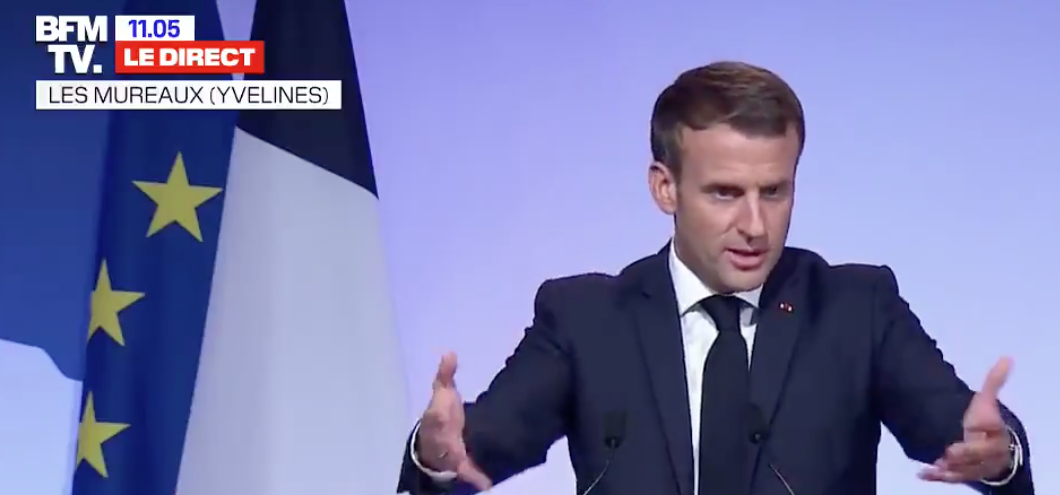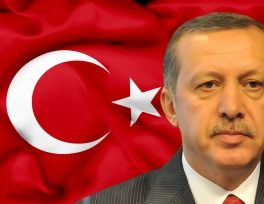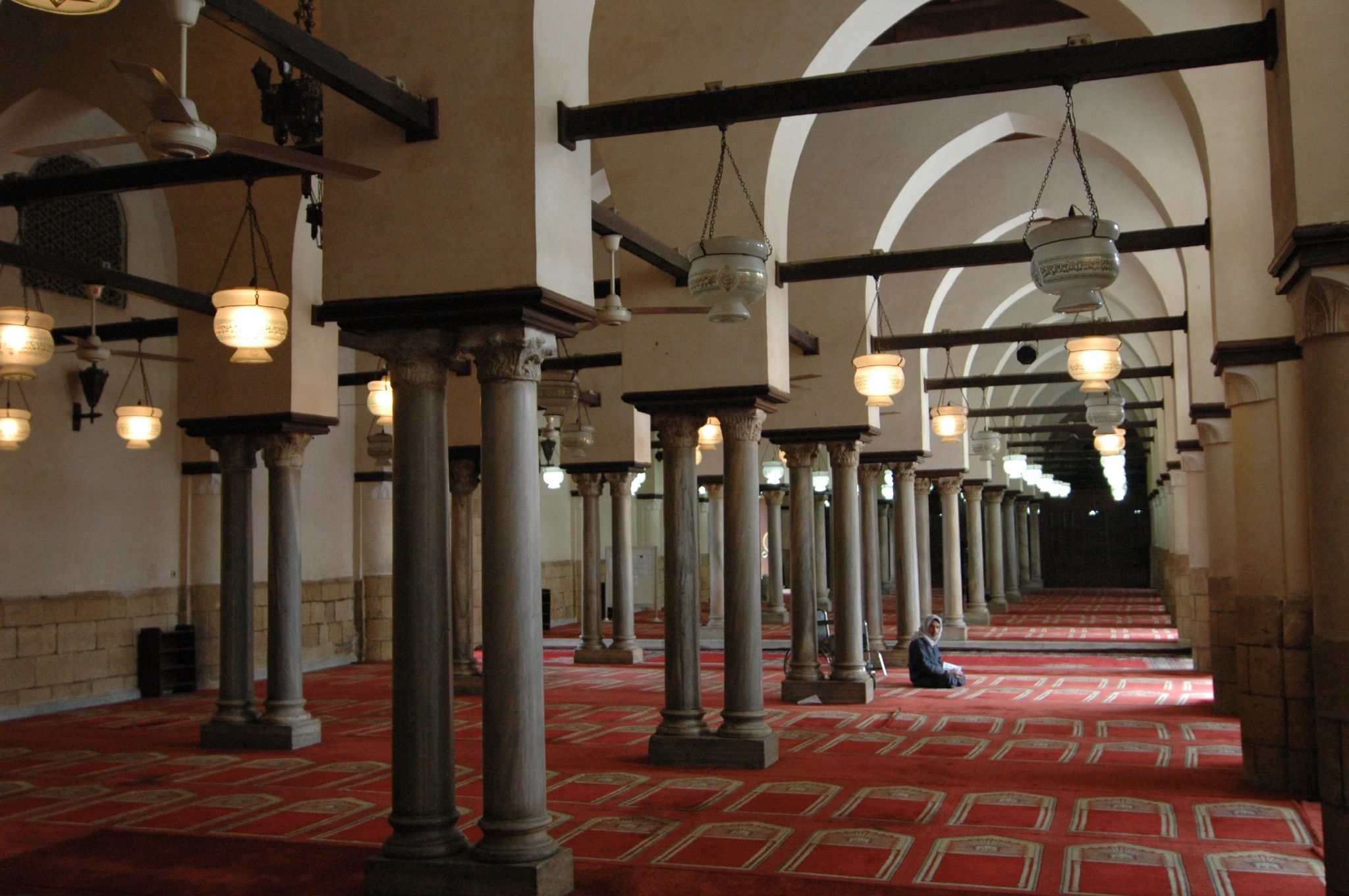For Macron to speak of a “crisis in Islam” is to pass judgment on a religion of 1.5 billion people and on individual Muslims, writes As`ad AbuKhalil.

French President Emmanuel Macron on Oct. 22, 2020. (Screen shot)
By As`ad AbuKhalil
Special to Consortium News
 With little coverage in Western media, and without support from most Muslim governments, a popular boycott of French goods is underway in many Arab and Muslim countries.
With little coverage in Western media, and without support from most Muslim governments, a popular boycott of French goods is underway in many Arab and Muslim countries.
France is alarmed enough about the growing boycott that it dispatched its foreign minister to Egypt on Sunday for a round of apologies and explanation, hoping that the Sisi government would prompt Al-Azhar University to help calm Arab and Muslim public opinion.
Despite shelves emptied of imported French goods, Muslims’ anger toward the French government and President Emmanuel Macron has been largely reduced in Western media to a mere tiff between Macron and Turkish President Recep Tayyip Erdogan.

Turkish President Recep Erdogan.
Far from being the instigator of the Muslim outrage, Erdogan has merely exploited the public reaction articulated on social media and in some street protests, and posed as the defender of the Prophet. (Muhammad holds a very special status for Muslims. Although he is not worshipped; he represents to them the exemplary Muslim, moral life).
Erdogan’s response to Macron, amplified by Qatari media, should be seen as part of the regional struggle between the Saudi-UAE axis on the one hand, and the Qatari-Turkish axis, which includes the Muslim Brotherhood.
Saudi Arabia and the United Arab Emirates want to avoid any confrontation with the West, especially as Saudi Crown Prince Mohammed bin Salman (MbS) struggles to return to the international scene after the disgrace which befell him with the murder of Jamal Khashoggi. MbS is too eager for Western rehabilitation to allow friction in his relations with the U.S. and Europe.
But his strategy carries the risk of ceding Muslim leadership from Saudi Arabia, the custodian of Islam’s two holiest sites, to Turkey or Qatar.
The beheading of a French history teacher in Paris on Oct. 16 by a young Chechen Muslim came after the teacher displayed — for explanatory, instructional purposes — a cartoon of Muhammad, while allowing Muslim students to leave the classroom. Macron called the murder “a typical Islamist terrorist attack.” The display of the cartoon has generated the Muslim condemnation and boycott.
Exploiting the Situation
Macron has attempted to politically exploit the situation. His Oct. 2 address on Islam was like a campaign speech and drew accolades from the Islamophobe right-winger Marine Le Pen, who congratulated him for adopting her “common sense” approach to Islamism, as well as by some French socialists who have been vocal in their Islamophobia and attacks on multiculturalism.
AFAIK and unless I missed something, not a single word in #Macron's speech on "separatisms" on the rise of ultranationalism and white supremacy in France.
— Rim-Sarah Alouane (@RimSarah) October 2, 2020
Macron decreed that “Islam is in crisis,” a declaration impossible for any Western politician to make about Judaism or Christianity. But Islam in the West is unlike any other religion, prompting measures from anti-terrorism laws to regulations on secularism to combat it.
To be sure, Donald Trump, George W. Bush and Macron, for instance, employ the word “Islamist” and not “Islamic,” connoting political Islam rather than the religion, though Macron spoke of Islam in crisis.
In anyway it’s lost in Arabic translation. If Arabs or Muslims made hostile declarations against “Judaic” or “Christianist” threats of terror, their statements would be seen — and rightly so — as bigotry.
The idea that such a declaration as Macron’s would not translate in most Muslim eyes into hostility to Islam underscores Western disregard for Muslim and Arab opinion.
The repression of Muslims has been a threat, now it is a promise. In a one hour speech #Macron burried #laïcité, emboldened the far right, anti-Muslim leftists and threatened the lives of Muslim students by calling for drastic limits on home schooling despite a global pandemic.
— Yasser Louati (@yasserlouati) October 2, 2020
Western media and governments correctly do not tolerate Palestinians invoking religion when criticizing Israel. Zionism is not confined to one religion. Evangelical Christians, for instance, are among the most fanatical Zionists in the world. Israeli war crimes should not be blamed on Jews or on Judaism, just as fanatical Islamism should not be blamed on Muslims or Islam.
The way Macron explained it, the West wants to redesign Islam. Western governments are already setting up institutions to produce Muslim preachers with acceptable views. It’s not too far-fetched to suggest that there may come a time when they may insist on a revision of the Qur’an to fit Western and Israeli policies and interests.
Furthermore, there is a thin line between hostility to immigration and hostility to race or religion in Western countries. In the U.S., it is often a disguised form of objection to a particular ethnic group, while in Europe the hostility takes the direct form of objection to Muslim immigrants.
In France, the two are invoked interchangeably. Despite this heightened anti-immigrant stance in the U.S., one never hears objections to the predominant religion of immigrants, which is Christianity. (Instead, some on the American right complain about immigration as a threat primarily of Muslim infiltration.)
The banner of secularism in France is raised by politicians to rationalize this hostility to Islam and Muslims in the guise of opposing political Islam, or Islamism.
Western Interference
Islamism is a product of Western interference in the Middle East to begin with.
From the early days of the Muslim Brotherhood in Egypt, which had a relationship with British intelligence, Western powers have often used violent Islamist groups against U.S. enemies in the region.
The U.S. worked with Gulf Arab countries for much of the Cold War to arm and finance Islamist radicals to combat communist and socialist forces in the region (from Gamal Abdel Nasser in the 1950s and 1960s, to the communists later in Yemen and Afghanistan). But Western secularism (versions of which vary from one country to the other, including in the U.S. where faith-based initiatives struck a blow against the secular pretensions of the state) is neither consistent nor absolute.
France is but an example. All the rhetoric against Islam and Islamist terrorism, and even complaints against any indications or manifestations of the Islamic faith, (like the “foulard” or the Halal meat in markets) is produced in the name of firm belief in secularism, or what they call “laicite” in France.

Interior of Cairo’s Al-Azhar mosque. (Francesco Gasparetti, CC BY 2.0, Wikimedia Commons)
The laicite did not clash, according to politicians, with government support of religious schools. Joan Wallach Scott says in her book The Politics of the Veil that:
“Since 1958, the French government has contributed 10 percent of the budgets of private religious schools; more than 2 million children attend state-supported Catholic schools…The school calendar still observes only Catholic (Christmas, Easter, etc) and state holidays; the proposal of the Stasi commission to add a Jewish and Muslim holidays was rejected by President Chirac” (p. 100-101).
Moreover, Western governments often invoke absolute freedom of speech to allow provocations and insults to Muslims and Islam. But all Western governments have restrictions on freedom of speech, in the name of morality, community standards, national security, or even integrity of history.
The various forms of insults to Muslims — which indeed is a form of expression that Muslims sometimes don’t realize are deliberate provocations intended to whip up more hatred of Muslims — sends a message from governments and media that Islam won’t be relegated to a protected status sometimes reserved for certain communities and groups.
Western governments have a problem with Muslims worldwide, not just in their local communities. “Islam is a religion that is in crisis all over the world today, we are not just seeing this in our country,” Macron said. For him to speak of a “crisis in Islam” is to pass judgment on a religion of 1.5 billion people, and on individual Muslims.
Macron no longer hiding his feelings about Islam. No longer radical Islam, now it’s just Islam that is the problem https://t.co/ljRK3LuNMM
— Bruno Maçães (@MacaesBruno) October 2, 2020
That Macron links world Muslims to a single Chechen murderer is to hold all Muslims responsible for the murders of each and every individual Muslim. This has been exactly the method of anti-Semites against Jews.
Macron invoked a new term, “Islamic separatism,” blaming Muslims for living in certain quarters while the segregation is largely class-based. Historically, Christian Europeans put Jews in ghettoes and then blamed them, and attacked them, for living in ghettos.
Borrowing from Classical Anti-Semitism
There is much in Islamophobia that is borrowed from classical anti-Semitism. And just like classical anti-Semites, Macron and other Western leaders insist on linking all Muslims to isolated terrorist incidents; while evidence exists that recent terrorist attacks were perpetrated by individuals who were not tied to a group or a network.
Yet, Muslims fall into a trap by allowing themselves to being provoked. There were insults against the Prophet from the very early days of Islam. Christianity perfected the art of insulting the Prophet and Islam since medieval times.
When Islamic civilization was then at its zenith, it seems Muslims were more thick-skinned and tolerant of polemical attacks and insults. As Palestinian historian Tarif Khalidi wrote days ago, Muslim history and theology books at the time contained insults to the Prophet what would cause riots in today’s Arab streets.
Many Muslims have become too defensive in their interactions with the West, and for obvious reasons. They are on shaky grounds when they complain about insults to their religion and Prophet when Muslim preachers, and even lay people, sometimes hurl insults against Jews and Christians (not to mention insults against Marxist atheists, the least thin-skinned group of “believers”).
The Islamophobic right wishes to instill the idea of Muslims’ intolerance, and some Muslims are reinforcing that view by their overreaction. It is not lost on many Arabs that some Muslims allow themselves to be outraged over an offensive French cartoon, but not over Western wars, Israeli occupation and aggression and tyrannical rule throughout the region.
It was inevitable that Macron would declare war on Islamism when his political fortunes seem to be sagging, knowing that white voters are drawn to anti-Islamist political messages especially when those messages contain both anti-immigrant and racist themes.
There is little sign of an improved environment of tolerance toward Muslims in Western countries and an economic crisis can easily turn into attacks on immigrants. France wants to unite the nation, just as the U.S. wanted to unite the nation prior to the civil rights movement.
It is a unity of hierarchy and not of equality: minorities need to know their places in the nation, or else.
As`ad AbuKhalil is a Lebanese-American professor of political science at California State University, Stanislaus. He is the author of the Historical Dictionary of Lebanon (1998), Bin Laden, Islam and America’s New War on Terrorism (2002), and The Battle for Saudi Arabia (2004). He tweets as @asadabukhalil
The views expressed are solely those of the author and may or may not reflect those of Consortium News.
Please Contribute to Consortium News
Donate securely with
Click on ‘Return to PayPal’ here.
Or securely by credit card or check by clicking the red button:



Quite frankly, as a person in Canada who was raised in a (Lebanese) Muslim household and is now no longer practicing in any form, I am sick to death of these people. Yes, Macron is being a bigot and yes, the western world can and does engage in behaviours that are considered “Islamaphobic” but I would also like to see some of these idiots who choose to emigrate to these countries leave behind their tired practices and behaviours. I would like to see them integrate better. If you want to live in places where it is illegal to insult the prophet etc, then don’t move to places that deliberately provoke you on the daily. Arabs and Muslims have more than enough problems on our hands in the west and every time one of these yahoos decides they are “defending their faith”, we ALL pay the price in a million little ways.
There are, in US Common Law, the concepts of “fighting words” and “a reasonable person.” The teacher who pushed this recent boulder off the cliff violated both those precepts. Surely he must have known those cartoons were in essence “fighting words” and no reasonable person would not see them as such and react strongly or possibly even violently.
I’m a true agnostic and I regard much of what most religions hold dear as things that humanity must move beyond for a multitude of reasons. But I refrain from insults and open ridicule. Despite the handwringing by Christians in the US and Europe, agnostics and atheists remain in a firm minority within our societies. It has been the reality for millennia, and will remain the case into the unforeseeable future.
“Sort of” an aside: If you investigate the ideas of “just war,” “holy war,” jihad, and now R2P you will find that the idealized concept of R2P has much closer ideological agreement with the thoughts and writings of Mohammed than anything espoused by western influencers. And it should be noted – if not blatantly obvious – that R2P has merely been invoked as cover for regime change which is just a continuation of colonialism and imperialism, exploitation and manipulation.
Posers such as Macron and his predecessors have no excuse for not realizing the consequences of being willing endorsers of the widespread destruction of the ME and especially the Levant and Northern Africa. The real crisis is the continued belief in the moral and ethical superiority of the West, skewered as it is on the points of their own spears.
If there is any stirring up of hostility to Muslims in France or elsewhere, this is disgusting and should be rejected. I would only like to suggest that Muslims should simply take no notice of insults such as cartoons. They are aimed at religions everywhere, my beliefs are often insulted but are strong enough for me to shake them off. I have no desire to punish or murder people who disparage my beliefs.. That kind of behaviour is indeed intolerbale.
Your comment reminds me of the hundreds of sporting events I’ve been to in the US. I always refuse to stand or take my hat off or any such thing when the national anthem plays. Normally I’ll get a few side glances, but sometimes some stranger will “order” me to stand up. A few times I’ve been warned I’d get my ass beat if I didn’t perform that ritual.
Maybe a bad comparison but it came to mind.
You can go to the hot dog stand when it’s playing.
*CORRECTION: I (Daniel Poynton) should have written ‘equally as cynical and Orwellian as the GENERAL CURRENT USE of the word “anti-semitism”‘. Obviously anti-semitism is still a very big problem today.
You had me, but you backtracked, so sad.
The act which started this entire issue was not explained quite correctly: “the teacher displayed — for explanatory, instructional purposes — a cartoon of Muhammad, while allowing Muslim students to leave the classroom.” Perhaps that sounds harmless. What was left out was that “the cartoon of Muhammad” (in and by itself something violating Islam) depicted the prophet as a nude male, and was displayed to girls in his class as young as 13 years of age. That aroused the ire of these girls’ parents, independent of religion or Islam. Any public school teacher with two connected brain cells knows that showing pornographic images to 13 years olds in class, (even under the pretext of “instructional purposes) simply is not done. Any teacher with one functioning brain cell knows that inciting students aged 13 with hateful messages is in violation of the mission of the public school system. This was not simply a lack of judgment by one teacher. This was a planned provocation. Another point I want to make is that there is no such thing as “ABSOLUTE freedom of speech. Nobody is allowed to yell FIRE in a crowded theater. Courts of law hand out fines for deliberate slander of others.
It’s a bit ironic that the two high-profile parties are Macron and Erdogan. Erdogan wants to bring back the Ottoman Empire and Macron the French Empire. They’re both fantasist asshats with much higher opinions of themselves than they deserve.
The “laicité” argument is very selective. A well- known comedian called Dieudonné has repeatedly been arrested, fined incarcerated for his “antisemitic” comments, and many people supporting the BDS movement to encourage Israel to conform to international law are arrested and on trial.
“the teacher displayed — for explanatory, instructional purposes — a cartoon of Muhammad, while allowing Muslim students to leave the classroom.” Surely this is provocation-many parents of the children involved protested about the vulgar, pornographic cartoons-and to suggest that Muslim kids leave makes it worse. This particular choice of “free expression” is not making fun of the rich and powerful.
btw, I have heard here in France NO comment or suggestion that Julian Assange is someone who needs support for his freedom to tell us about war crimes of our “allies”. Perhaps France supports “British justice” and not freedom to speak truth.
I agree that free speech laws are never perfectly executed, and the apparent strictness on anti-semitic speech in France seems particularly hypocritical (although remember that the Holocaust is still very fresh in many European minds – one could perhaps make allowances for this). However if shocking cartoons of Jesus are allowed in France (please see Charlie Hebdo’s on the Holy Trinity – although perhaps not if you’re a Christian), then it is obviously completely unworkable to make Muhammad an exception, and of course this includes discussing the cartoons and showing them in a state school.
Btw free speech in the Western sense has never been confined to only ridiculing the “rich and powerful” – if you believe that, then you still have not understood “free speech”, as with almost every Muslim commentator I have read on this issue (including obviously The Angry Arab, despite his often incisive writing).
Hello Rosemerry. Take a look at the site hXXps://www.les-crises.fr/ . It has a whole series of articles on the scandalous treatment of Julian Assange, often translated from Consortiumnews. One of the best things is the comments posted, inclluding some I write now and then. I think that comments from you will be most welcome on various subjects.
Maybe you already know about the France Insoumise movement which represents an excellent progressive alternative to the various political groups whose actions have been part of creating the disastrous situation France, Europe, and the world as a whole now is in.
Ne lâchez pas !
I agree with As`ad Abukhalil that Muslims fall into the trap of being reactionaries and thus arm those who want them to seen as such. Muslims have lived in such situations for a long time that by now they (Muslims) should have learnt to disarm our critiques in a right way than merely reacting in negative ways.Do Muslims really feel the right way to show the right tenets of the great religion is to react in the very way their detractors want or portray them to be? We have to find a better way of defending Islam and Muslims in the best way possible as Islam teaches than doing exactly as others portray them and the religion.
Everyone should read this important article. Every detail should be kept in mind. Here I add another detail.
The movement La France Insoumise, active more than any other group in the parliament (Assemblée Nationale), points out that the murder of the history teacher Samuel Paty was done in order to promote the separation of French Muslims from the rest of the French population thus creating two separate and hostile groups. Such separation is promoted by the far right Rassemblement National and other anti-immigration groups. It puts the Muslims of France, overwhelmingly opposed to violence and overwhelmingly French, in great danger. Some mosques have been been attacked (as well as some synagogues).
President Macron has been worse than useless. He has actively supported U.S. and NATO military actions in the Middle East and sub-Sahara Africa where many Muslims live. In France he supports a sort of subtile exclusion of Muslims (via dress codes for example) from participating in needed useful activities.
“he supports a sort of subtle exclusion of Muslims (via dress codes for example)”: who is forcing anyone to wear traditionally Muslim clothing?